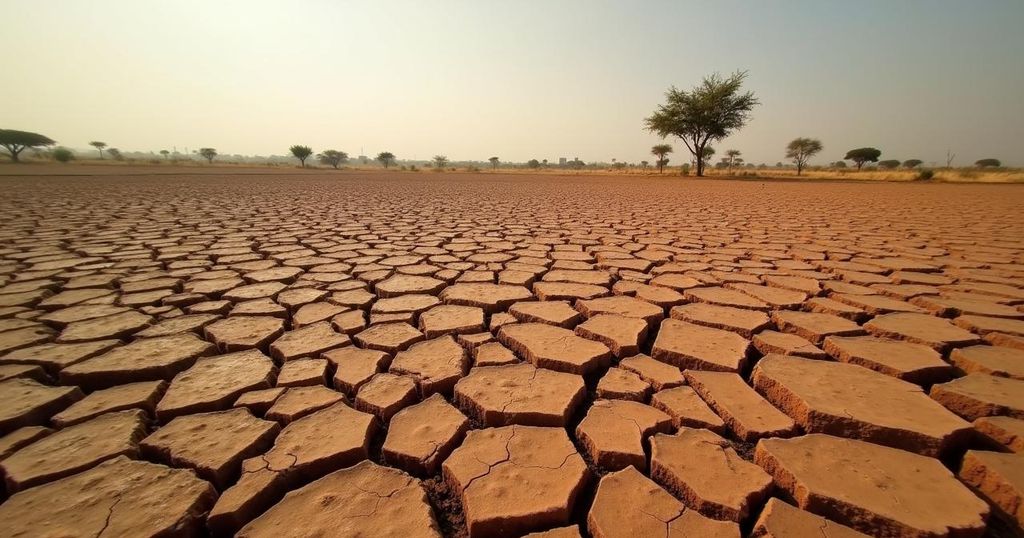Severe Drought in Southern Africa Threatens Millions with Malnutrition and Hunger
The worst drought in a century is currently affecting Southern Africa, putting over 27 million lives at risk and resulting in 21 million children suffering from malnutrition. The drought, exacerbated by climate change and the El Niño phenomenon, has destroyed crops and livestock across several nations, leading to widespread hunger and potential humanitarian disaster.
A catastrophic drought, recognized as the most severe in a century, has plunged Southern Africa into a humanitarian crisis, adversely impacting the lives of over 27 million individuals. The United Nations’ World Food Programme (WFP) has reported that 21 million children in the region are experiencing malnutrition due to this unprecedented situation. Affected nations, including Lesotho, Malawi, Namibia, Zambia, and Zimbabwe, have declared national disasters as a consequence of the drought ravaging their agriculture and livestock sectors. Furthermore, countries such as Angola and Mozambique have also suffered significant repercussions from this crisis. The WFP anticipates that conditions are poised to worsen before the upcoming harvests, projected for March and April of next year.
Southern Africa is facing one of the gravest food crises in its history, predominantly driven by a historic drought linked to both the El Niño weather phenomenon and climate change. This region relies heavily on rain-fed agriculture, making it particularly vulnerable to fluctuations in climate. The severe drought has decimated crop yields, with reports indicating a 70% loss in Zambia and an 80% loss in Zimbabwe, thereby exacerbating food scarcity. Additionally, the drought has hindered hydropower generation, causing widespread electricity shortages and prompting governments to take drastic measures, including the culling of wildlife to address the growing needs of the population.
The current drought in Southern Africa is a stark reminder of the region’s vulnerability to climate change and the dire need for urgent humanitarian assistance. With millions of lives at stake, international cooperation and support are crucial to mitigate the consequences of this crisis, particularly for the vulnerable populations who depend on agriculture for their livelihood. Immediate action is necessary to alleviate hunger and restore stability in the affected areas, emphasizing the importance of developing climate-resilient policies to protect communities from future adversities.
Original Source: www.aljazeera.com




Post Comment